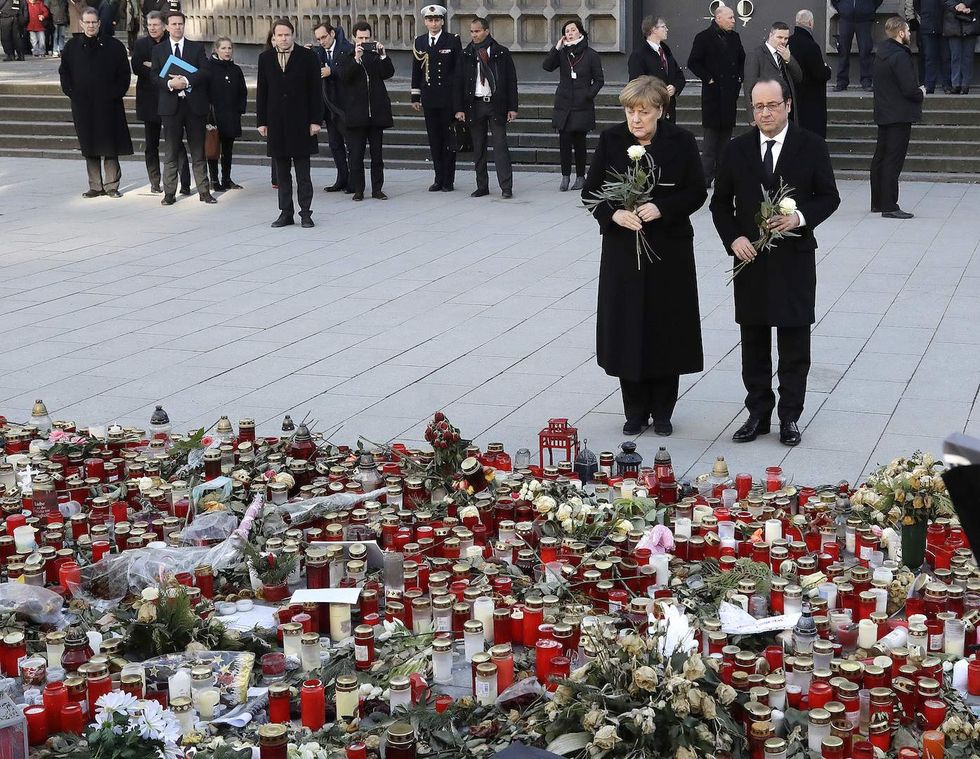In a departure from the narrative of former President Barack Obama that many terror attacks in the U.S. were carried out by "lone wolves" — or individuals acting alone — the New York Times Saturday offered an analysis of what they called "remote controlled" terrorism, or individuals coached in terror tactics online and from afar.
According to the Times, these individuals are trained and guided by terror groups employing "virtual plotters" and "cyber planners" who keep in near constant contact with the individuals carrying out the actual terror plot. Terror agents are micromanaged in every decision, right down to the bullets they use to carry out their violence. They are, says Nathaniel Barr, a terrorism analyst at Valens Global, who along with Daveed Gartenstein-Ross of the Foundation for Defense of Democracies in Washington wrote one of the first articles discussing the virtual plotters, cyber-controlled "from radicalization to recruitment into a specific plot."
An examination of successful and unsuccessful plots claimed by the Islamic State over the past three years indicate that these guided plots make up the lion's share of the Islamic State's terror operations.
"If you look at the communications between the attackers and the virtual plotters, you will see that there is a direct line of communication to the point where they are egging them on minutes, even seconds, before the individual carries out an attack," said Barr.
As the Times points out, this analysis is different from what had been the talking points from the Obama administration regarding terror attacks within the U.S. borders:
For the most part, the operatives who are conceiving and guiding such attacks are doing so from behind a wall of anonymity...Because the recruits are instructed to use encrypted messaging applications, the guiding role played by the terrorist group often remains obscured.
As a result, remotely guided plots in Europe, Asia and the United States in recent years, including the attack on a community center in Garland, Tex., were initially labeled the work of “lone wolves,” with no operational ties to the Islamic State, and only later was direct communication with the group discovered.
Many of these cyber plotters, prior to 2015, were located in Syria due to an aggressive campaign by the Islamic State to convince their followers that moving to Syria was "a spiritual obligation." After 2015, the Times reports, travel to Syria had become treacherous and so would-be attackers were encouraged to carry out their plots locally.
This led to a refinement of the "cyberplotting"method, as one example from The Times detailed:
As soon as [Indian terror suspect Mohammed Ibrahim] Yazdani indicated he was willing to undertake an attack, the handler instructed him to download ChatSecure, a messaging app to be used when they spoke by phone. When he used his laptop, he was told to contact the handler via Pidgin, another encrypted tool. He was told to create an account with Tutanota, a secure email service. And the handler taught Mr. Yazdani how to use the Tails operating system, which is contained on a USB stick and allows a user to boot up a computer from the external device and use it without leaving a trace on the hard drive.
The Times claims that the German terrorist who set off a bomb outside a concert, and the teenage train attacker who assaulted passengers with an ax "were both chatting with handlers until minutes before their attacks."
The piece also alleges the recent attack of the 85-year-old French priest whose throat was slit inside his church was guided by an Islamic State cybercoach. The pair of attackers had reportedly not been acquaintances, but were put together to carry out their grisly attack by their cyber-handler.
The reliance on "local amateurs" has given the Islamic State the ability to boast about being a worldwide terror outfit, but it also has led to a number of failed attacks.



